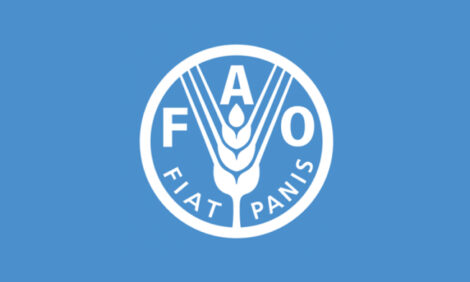



Organic dairy farms resilient in the face of COVID-19 crisis
A team of researchers from the Agroecology, Innovations, Territories (AGIR) unit working on farm resilience at the INRAE Occitanie-Toulouse center looked at the impacts of the COVID-19 pandemic on French organic dairy cattle farms and supply chains.Their study, published February 2021 in the journal Agricultural Systems, analyzes the features of farms and commodity chains that promoted their resilience to the crisis.
Resilient agroecological farms
The recent COVID-19 pandemic has highlighted the need to transform our agricultural and food systems towards greater autonomy and resilience. Infectious diseases caused by bacteria, viruses, parasites or fungi are more frequent and difficult to predict for farmers and actors in the sector. To protect against these emerging risks, many scientists suggest that agricultural and food systems should be oriented towards agroecological models.
A team of researchers from the INRAE Occitanie-Toulouse center has studied the resilience of French organic dairy cattle farms and supply chains during the COVID-19 pandemic, which were very little affected by the crisis.
Why were these organic dairy farms resilient?
By combining online surveys of farmers, semi-structured interviews with stakeholders in the sectors and examination of data from InterBIOccitanie and the Centre National Interprofessionnel de l'Economie Laitière (CNIEL), the research team identified several features responsible for the resilience of these farms and supply chains.
Family scale & feed autonomy
Of the 86 farms that responded to the survey, 38 farmers reported no impact from the crisis and 43 others experienced minor impacts on aspects such as their income. Very few were affected by problems with the availability of workers.
Most (70%) of the organic dairy farms in the study were family farms (average of two full-time workers equivalent according to the sector survey) that rely on internal human resources and manage less than 100 ha and 100 cows. They are integrated into local actor networks (associations, farmers' groups, cooperatives, etc.).
The vast majority of these farms were self-sufficient for livestock feed and relied mainly on grassland (38% of the farms in the online survey did not grow any maize for silage at all, while for 59% of these farms, maize represented less than 5% of the agricultural area used). Thus, no farmer reported shortages in the supply of feed or other inputs nor related impacts on the technical functioning of the farm and its productivity.
Resilience was promoted by several factors, including farm autonomy and self-regulation by the collective of workers, which is fostered by connectivity between actors and their local interdependencies.
Reorganization of supply chains
By demonstrating agility and flexibility to reorganize quickly and at lower cost, supply chains continued to produce sufficient quantities of dairy products to meet consumer demand. They reduced the range of products produced, concentrating on the basic products that are most in demand: milk, cream, butter and plain yogurt. Faced with the lack of drivers to collect milk, some dairies even hired retired drivers to ensure the continuity of the collection.
These results show that the choice of agroecological models such as organic agriculture, here for dairy production, is relevant to ensure the resilience of agricultural and food systems to shocks such as the COVID-19 pandemic. By adapting to the impacts of the crisis, farmers and supply chain actors continued to produce responsibly, in accordance with organic standards, and provided consumers with sufficient dairy products, without degrading their income and working conditions.
Carried out at the end of the first lockdown period, this preliminary work should be continued in order to understand the impacts of the COVID-19 pandemic over the longer term


